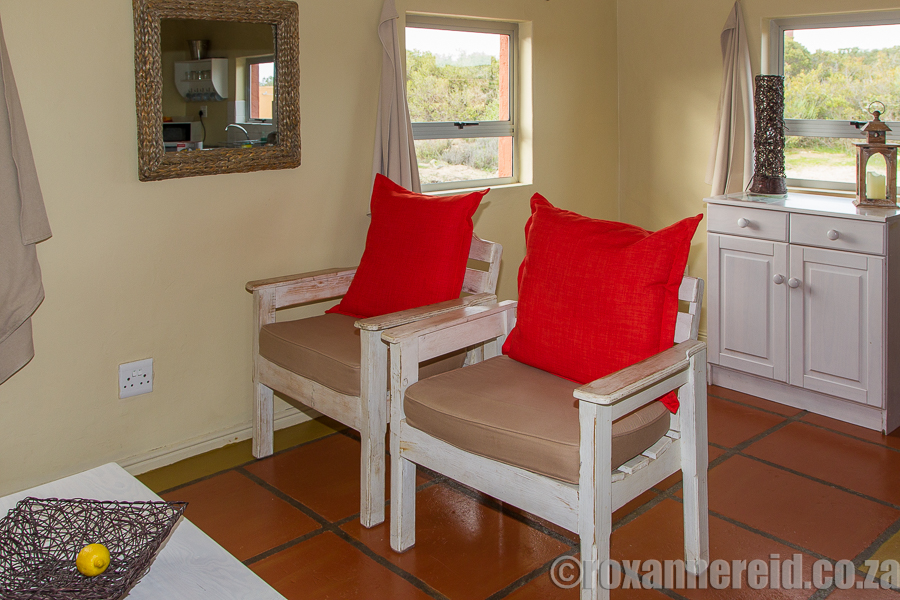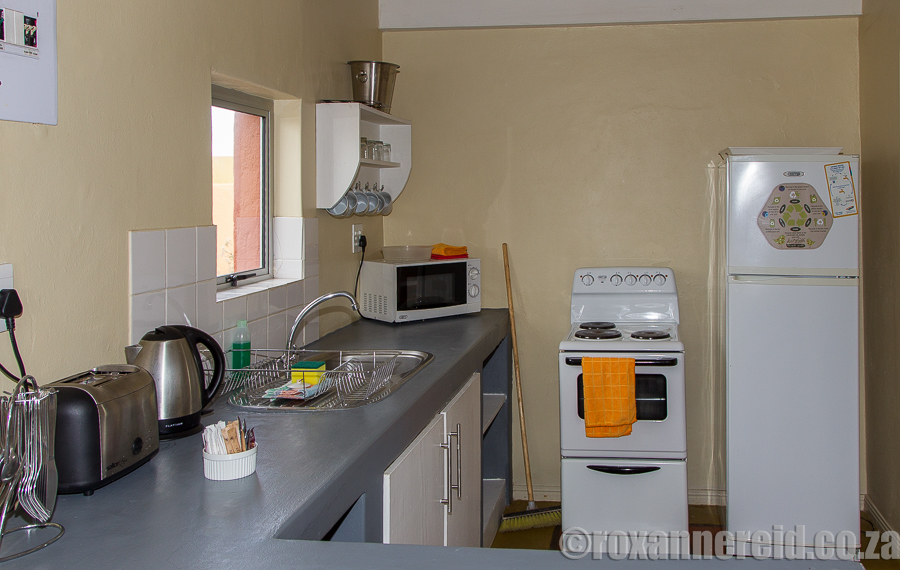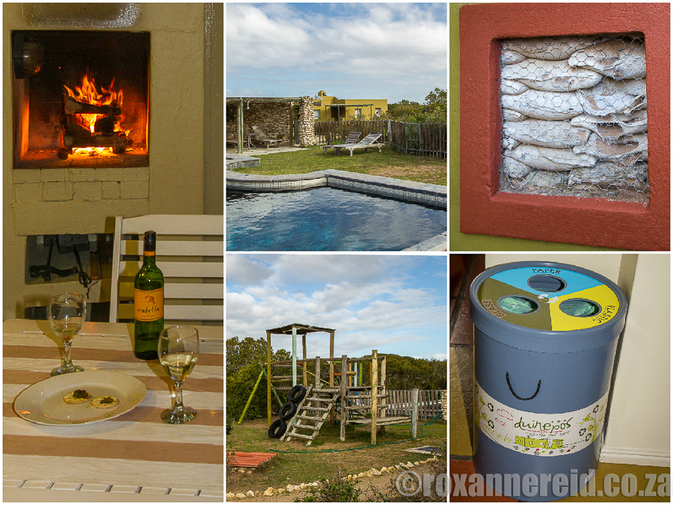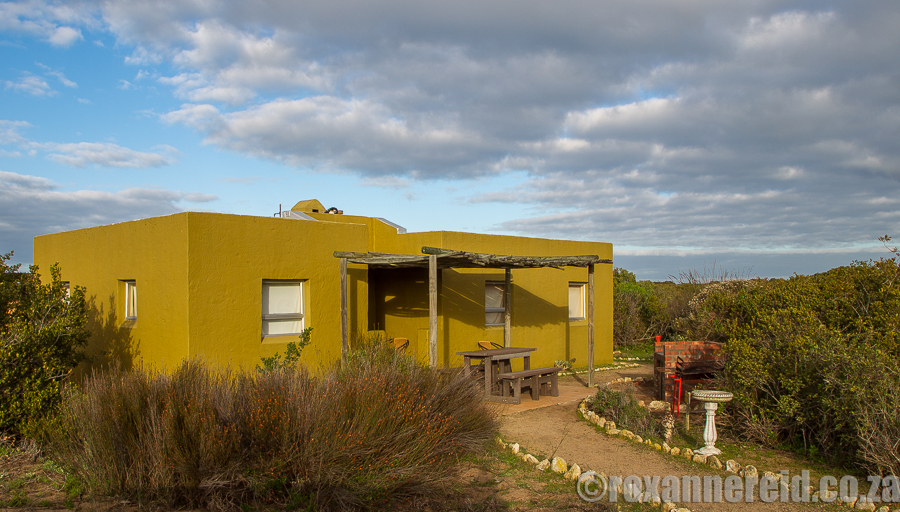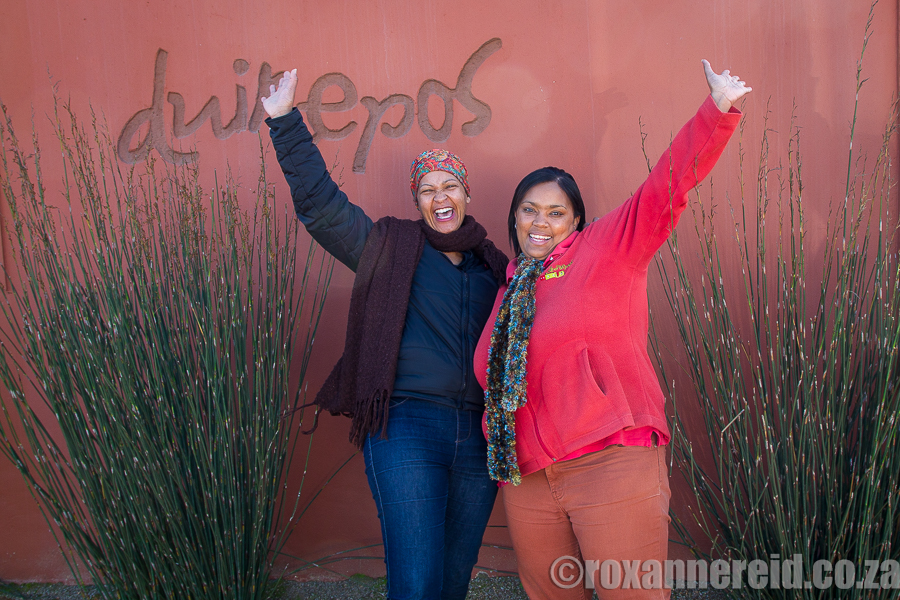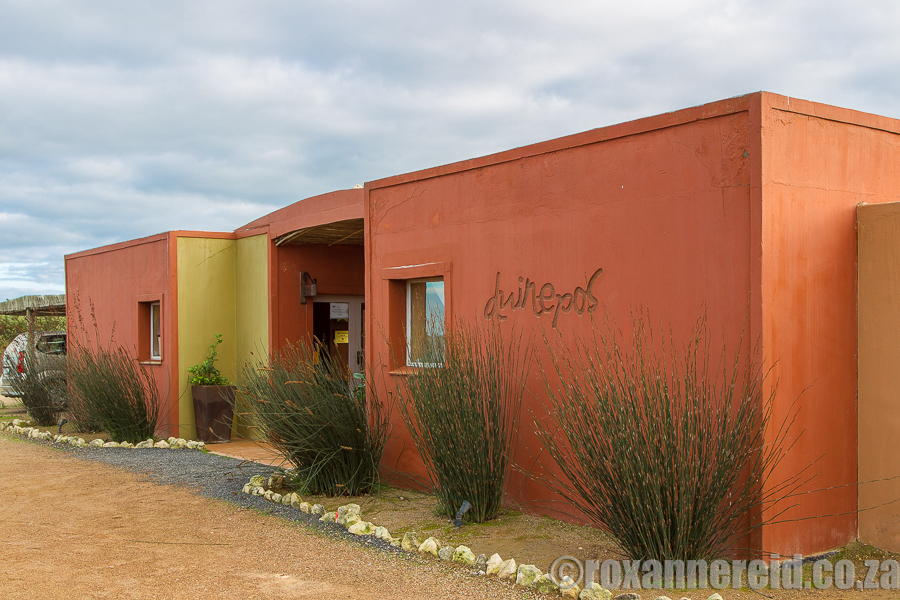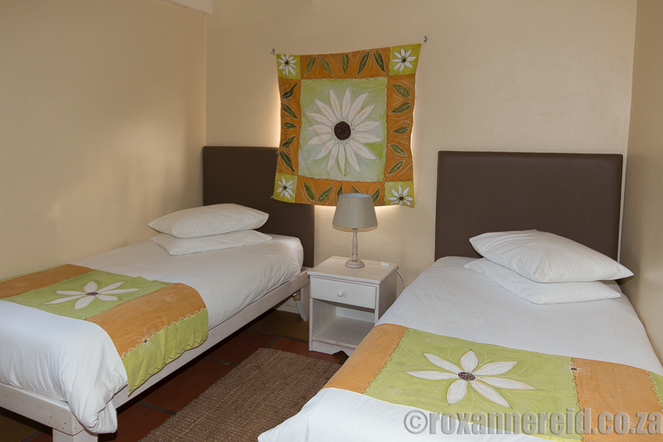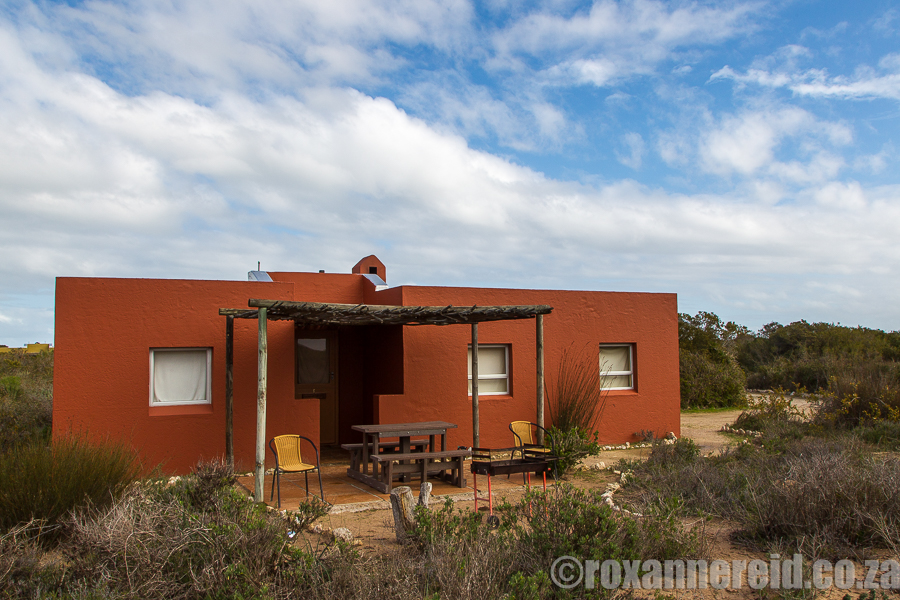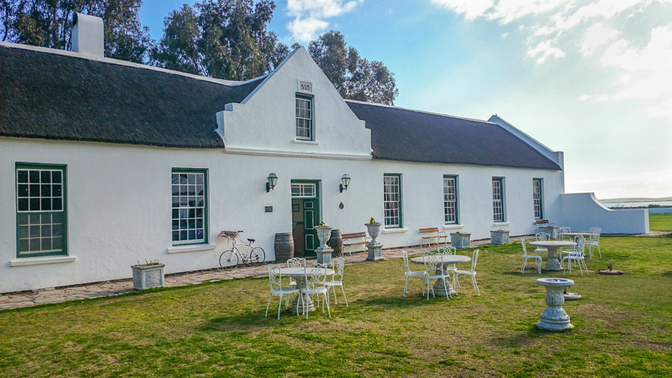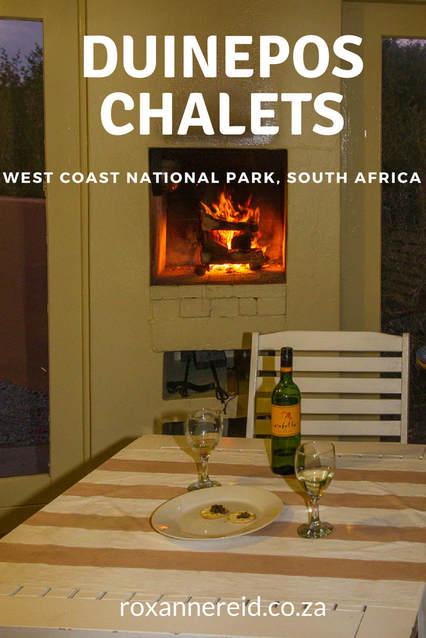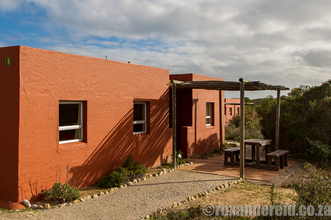
It was the end of July, a grey, wet and cold day. But we were as happy as clams, snugged up at the 3-star self-catering Duinepos chalets on the Cape West Coast, fire burning in the grate, warming wine in our glasses.
The Duinepos chalets are painted outside in upbeat ochre tones from reddish-brown to mustard yellow. Inside they’re lovely, with a bright open-plan lounge-dining-kitchen area and two bedrooms. The kitchen is well equipped with stove, oven and microwave as well as all utensils, even an ice bucket and coffee press. Outside on a small stoep is a picnic table made from recycled plastic, a portable braai and a bird bath where Cape bunting, bokmakierie and Cape robin came to visit.
The story behind Duinepos
The story behind Duinepos is a special one, a story of community tourism and empowerment. A story of responsible travel that benefits the environment and local communities at the same time as providing something tourists want.
‘We had to submit a business plan,’ said Hildegarde Valentyn, one of the final three, who was working at reception the day we arrived. ‘Thirty-eight people applied and 15 were called in for interviews, then five were shortlisted.’ The first phase opened at the end of 2005 and now Hildegarde, Janine Fortuin and Augusta Pretorius own the business and are still running it successfully.
‘Our philosophy at Duinepos is to live in harmony with the natural environment,’ Hildegarde told me. That means minimising the use of water, using eco-friendly products for laundry, and natural landscaping with indigenous plants. Visitors recycle waste from their chalets, and a water recycling system is on the to-do list when funds allow. Duinepos is a member of the GreenLine Responsible Tourism Certification programme, whose principles include using local products, supporting local communities and minimising environmental impact.
Janine, Hildegarde and Augusta are still hands on in the business and now employ four permanent staff from the local community and another two in high season.
‘A percentage of our profit also goes back to the local community each year,’ said the bubbly Janine, who obviously feels passionately about this social responsibility project. ‘We thought long and hard because we wanted our efforts to really make a difference. Eventually we chose the local primary school and two crèches. Each year we find out what’s on their wish list. Then we source and donate those things that will have a positive impact on learning development because that’s so important.’
1. Staying at Duinepos gives you access to the West Coast National Park (for which you pay a daily conservation fee, unless of course you have a Wild Card). The park is a Ramsar wetland of global importance, so go birding along the lagoon or at one of the four bird hides in the park. You’ll find lots of water birds and waders.
2. Visit the Postberg Nature Reserve to see the spring flowers during August and September, which are the only months of the year when the reserve opens to the public.
3. If you visit between August and October you might also spot some whales from Tsaarsbank picnic/braai spot in the park.
5. Go hiking or mountain biking along trails in the park, or visit the town of Langebaan just outside the park for kite surfing or kayaking.
Note: If you don't have a Wild Card you will pay a daily conservation fee to the park.
[Update: Sadly, Duinepos closed its doors when the concession expired and SANParks has not appointed a new concession holder.]
You may also enjoy
West Coast National Park: the ultimate guide
Like it? Pin this image!
